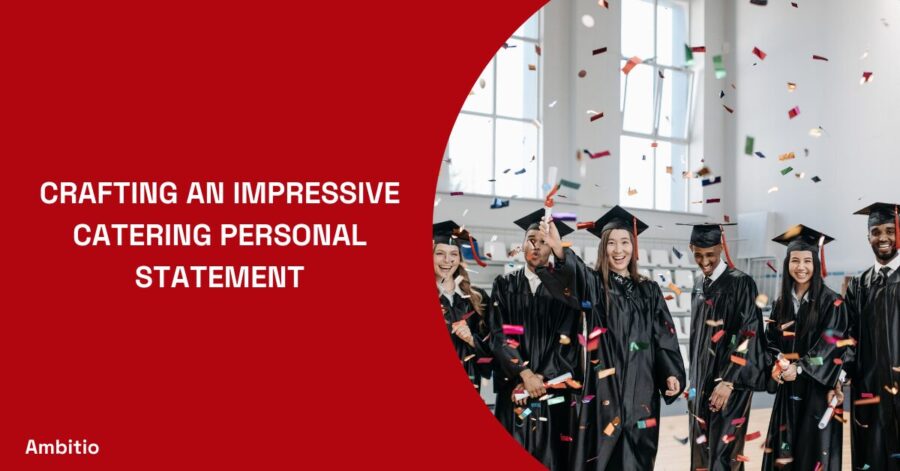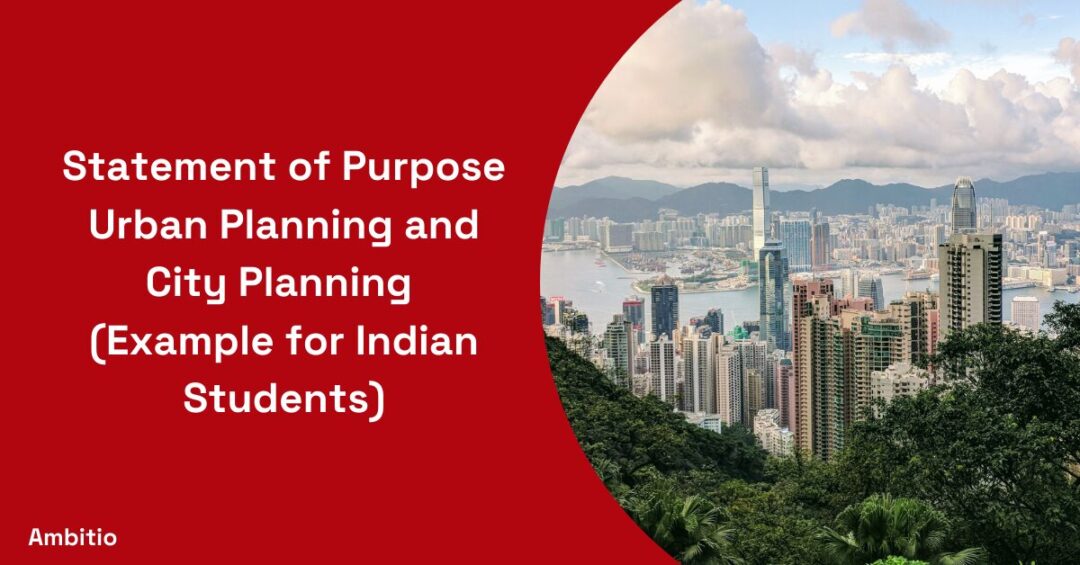13 December 2024
5 minutes read
Crafting an Impressive Catering Personal Statement: Examples and Tips

Introduction
The world of catering and hospitality is as demanding as it is rewarding, calling for a unique blend of passion, skill, and dedication. Whether you’re an aspiring chef, a catering assistant, or seeking to further your culinary education, a compelling personal statement can set you apart. This guide provides in-depth insights and practical examples to help you craft a standout catering personal statement.
The Art of a Captivating Personal Statement in Catering
Your personal statement is more than just an account of your experiences; it’s a narrative that weaves together your passion, skills, and aspirations in the field of catering and food.
This section of your application is your chance to bring to life the person behind the qualifications and to tell your unique story in a way that resonates with admissions officers or potential employers.
Key Ingredients of a Powerful Personal Statement
To create a personal statement that truly stands out, consider the following essential elements:
- Engaging Introduction: Start with an anecdote or a vivid description that captures your deep-rooted interest in the culinary world.
- Educational Journey: Detail your educational path, highlighting any coursework or projects particularly relevant to catering and food science.
- Professional Experiences: Discuss your work history, focusing on roles and responsibilities that have prepared you for a career in catering. Describe specific situations where you demonstrated skills like leadership, creativity, or customer service excellence.
- Personal Motivation: Share what drives your passion for food and catering. This could be an early cooking experience, a family tradition, or a culinary figure who has inspired you.
- Future Aspirations: Clearly articulate your career goals and how the role or course you’re applying for aligns with these ambitions.
Crafting Your Narrative: Structuring Your Personal Statement
A well-structured personal statement flows logically, making it easy for the reader to follow your journey. Here’s a suggested structure:
- Opening that Captures Attention: Begin with a compelling story or statement that draws the reader in.
- Academic and Professional Highlights: Segue into your educational and professional achievements, linking them to your interest in catering.
- Personal Reflections: Reflect on what these experiences mean to you and how they have shaped your aspirations.
- Conclusion that Resonates: End with a forward-looking statement that ties your past experiences with your future goals in the field of catering.
Deep Dive into Catering and Food Science Personal Statements
Let’s explore what makes a personal statement in catering and food science truly compelling. This is where you blend your technical knowledge with your culinary passion, showing that you’re not just proficient in the practical aspects of the job but also deeply engaged with the theoretical underpinnings of the field.
Balancing Technical Expertise with Culinary Passion
Your personal statement should reflect a balance between your technical skills and your love for the culinary arts. Consider the following points:
- Technical Skills: Discuss your knowledge of food science, food preparation techniques, and any relevant tools or technologies you are proficient in.
- Culinary Passion: Talk about what excites you in the world of catering and food. This could be experimenting with flavors, the joy of creating new dishes, or the satisfaction of event planning and execution.
Translating Hospitality Experience into a Compelling Story
For those with experience in the hospitality industry, your personal statement is an opportunity to showcase how these experiences have prepared you for a more specialized role in catering.
From General Hospitality to Specialized Catering
Illustrate how your hospitality experiences have honed skills that are transferable to catering, such as customer service excellence, attention to detail, and the ability to manage fast-paced environments. Share specific examples of how you’ve excelled in these areas.
The Journey from a Catering Assistant to a Culinary Professional
Embarking on a career in the culinary world often begins with an entry-level position, like that of a catering assistant. This role, while it may seem modest, serves as a crucial stepping stone towards becoming a culinary professional. Below, we delve into the key aspects of this transformative journey:
- Gaining Fundamental Skills:
- Hands-on Experience: Understand the basics of food preparation, presentation, and safety protocols.
- Time Management: Learn to efficiently manage tasks within tight timeframes, a vital skill in any fast-paced kitchen environment.
- Teamwork: Discover the importance of working collaboratively in a kitchen environment, coordinating with chefs, servers, and other staff.
- Understanding the Dynamics of a Professional Kitchen:
- Kitchen Hierarchy: Familiarize yourself with the structure and roles within a professional kitchen, from line cooks to head chefs.
- Adapting to Pressure: Learn to thrive in high-pressure situations, a common scenario during large catering events.
- Developing Specialized Culinary Skills:
- Culinary Techniques: Master advanced cooking techniques and food preparation methods.
- Flavor Profiling: Develop a palate for identifying and pairing flavors, an essential skill for any aspiring chef.
- Engaging in Continuous Learning:
- Formal Education: Pursue further education in culinary arts to deepen your understanding and technical skills.
- Workshops and Seminars: Attend industry workshops and seminars to stay updated with the latest culinary trends and techniques.
- Building Professional Relationships:
- Networking: Connect with industry professionals, mentors, and peers to expand your professional network.
- Mentorship: Seek mentorship opportunities with experienced chefs to gain insights and guidance.
- Taking on Increased Responsibilities:
- Menu Development: Participate in menu planning and recipe development, showcasing creativity and innovation.
- Supervisory Roles: Gradually take on more responsibilities, possibly overseeing a team or a section of the kitchen.
- Exploring Creativity and Personal Style:
- Signature Dishes: Experiment with creating signature dishes that reflect your personal culinary style.
- Culinary Competitions: Participate in competitions to challenge yourself and gain recognition for your skills.
- Understanding Business and Management Aspects:
- Inventory Management: Learn about managing kitchen inventory, ordering supplies, and cost control.
- Customer Service: Gain insights into customer preferences and the importance of customer satisfaction in the culinary industry.
- Cultivating a Personal Brand:
- Social Media Presence: Establish a presence on social media platforms to showcase your culinary creations and connect with a broader audience.
- Personal Portfolio: Build a portfolio of your work, including photos of dishes, menus you’ve contributed to, and any accolades or recognitions.
- Setting Long-term Goals:
- Career Pathways: Identify your career goals, whether it’s becoming a head chef, owning a catering business, or specializing in a particular cuisine.
- Continual Growth: Commit to ongoing personal and professional development to keep advancing in your culinary career.
Each of these steps plays a crucial role in the transition from a catering assistant to a culinary professional. It’s a journey marked by continuous learning, skill enhancement, and an ever-growing passion for the culinary arts.
Conclusion: Tying It All Together
In conclusion, your catering personal statement is a powerful tool that can open doors in your culinary career. By effectively communicating your experiences, passions, and aspirations, you can make a lasting impression on admissions committees or potential employers. Use this guide as a roadmap to craft a statement that is as unique and flavorful as your culinary creations.
Remember, a well-crafted personal statement can be the key ingredient to your success in the dynamic and exciting world of catering and culinary arts. Use these insights to create a statement that not only showcases your skills and experiences but also reflects your passion for the art of food and hospitality.
FAQs
How important is it to personalize my statement for each application?
Highly important. A tailored statement shows that you have taken the time to understand what each program or job is looking for and how you fit into that picture.
Can I use technical jargon in my statement?
Yes, but sparingly. It’s important to demonstrate your knowledge but remember that your statement should be accessible to a broad audience.
Should I mention specific culinary skills in my personal statement?
Yes, highlighting specific culinary skills, especially those relevant to the role or course you’re applying for, is beneficial.
Q: How long should a catering personal statement be?
Generally, aim for about 500-800 words, keeping it concise yet comprehensive.

You can study at top universities worldwide!
Get expert tips and tricks to get into top universities with a free expert session.
Book Your Free 30-Minute Session Now! Book a call now




























